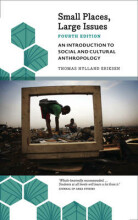Summary: Roekel, Evan Van (2020)
- This + 400k other summaries
- A unique study and practice tool
- Never study anything twice again
- Get the grades you hope for
- 100% sure, 100% understanding
Read the summary and the most important questions on Roekel, Evan van (2020)
-
0 Prologue
This is a preview. There are 6 more flashcards available for chapter 0
Show more cards here -
What is the main topic of the book "Phenomenal Justice''
In September 2009, Van Roekel made her first visit to Buenos Aires to determine the course of her ethnography on the trials for crimes against humanity in Argentina -
Explain what Van Roekel means with ''phenomenal justice''
From a phenomenological perspective, “phenomenal” means what is given and what is explained in the way we encounter the immediate world -
The phenomenological concept lifeworld
The phenomenological concept lifeworld is used to systematically analyze these determinants that interact dynamically with how people experience emotions. -
1 Chapter 1
This is a preview. There are 5 more flashcards available for chapter 1
Show more cards here -
Who is Carlos Espinosa?
He is a federal judge in Argentine for 4decades and had a couple of weeks, before theverdict on the 5 military officers, a conversation with VanRoekel -
Van roekel named 2 reasons on why she wrote about feelings
- First, feelings focus on the long-term conscious aspects in understanding how people feel, without ignoring the physiological aspects
- Second, because “feeling” comes closer to Argentinians where they make sense of affective life as a social experience in which self and other, the physical and the psychological, and the conscious and unconscious smoothly meet.
-
1.2 Phenomenology in Practice
-
four main dilemmas in the study of experience and how to (partially) resolve them in terms of epistemology and methodology
- only through interchanging subjective experience we recognise partiality of human life
- new social situations make us aware of boundaries between the self and the other
- The way we engage with and in the world is not random, but intentional.
- Intentionality also makes it impossible to experience the world in its totality.
- only through interchanging subjective experience we recognise partiality of human life
-
Second, the imperceptible also shapes the contours of the ways in which we live with and in the world. But the tangible and intangible are not separate spheres. They both create one “meaningful totality” (Bakker 1969, 72). What is meaningful totality?
People experience these meaningful totalities in various ways. What is imperceptible for one person can be tangible for somebody else. -
Third, The way we engage with and in the world is not random, but intentional. What do they mean by this?
This means that ourexperiences are always directed toward the world throughvarying concepts , thoughts, and ideas that provide content to the given experience -
1.3 Methodology & Affective Fieldwork
This is a preview. There are 3 more flashcards available for chapter 1.3
Show more cards here -
Empathy involves several methodological and epistemological dilemmas. Name these
- empathy is not a linear process and the experience between empathizer and the one being empathized is not homologous
- Empathy (or not) emerges beyond the intentions of an ethnographer
-
Reflexivity has also been recognized as an important field procedure for learning about feelings
Reflexivity plays a significant role in understanding feelings. (critisized because some believe that ethnographers’ feelings lose their explanatory power away from home as they belong to narratives that are too different)
- Higher grades + faster learning
- Never study anything twice
- 100% sure, 100% understanding
































